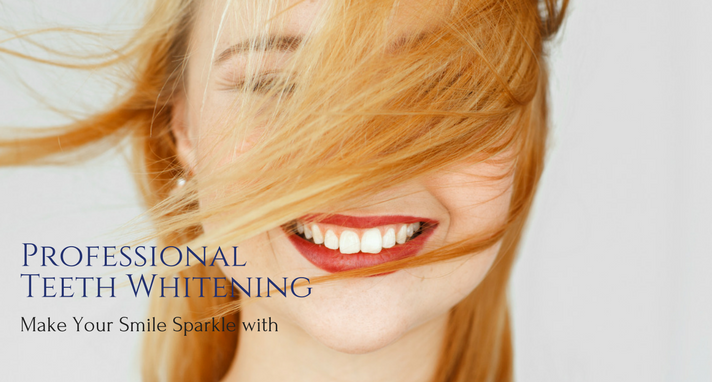33 Abbey Parade, Wimbledon, London SW19 1DG
33 Abbey Parade, Wimbledon, London SW19 1DG

Your smile says a lot about you. It’s often the first thing people notice and can speak volumes about your personality before you even utter a word. A sparkling white smile, for example, radiates happiness, confidence and beauty. Some people are genetically gifted with pearly white teeth, while most of us aren’t born as lucky. As a result, teeth whitening is becoming an increasingly popular dental treatment used to transform dark and discoloured smiles.
Isn't it time for you to get the smile you’ve always wanted? Book an appointment today with your dentist in Wimbledon for professional teeth whitening. Our friendly and experienced team at Confidental Dental Clinic use state of the art technology to brighten your teeth and give you a smile to be proud of.
Teeth whitening is essentially the application of bleaching solution onto teeth. The bleach attacks the dark particles that cause teeth discolouration by sticking to the enamel and dentin. Depending on the treatment used, the solution is left on the teeth for at least 30 minutes or an hour.
Tooth discolouration or staining can be categorised into two different categories: extrinsic (external/surface) and intrinsic (internal).
Extrinsic stains are often caused by lifestyle choices including:
Alternately, intrinsic stains are largely caused by aging; the enamel dullens while the underlying dentin thickens and yellows, gradually becoming more and more noticeable. Intrinsic discolouration also results from tooth decay, small cracks in the enamel and root canal complications, as well as jaundice, over-consumption of fluoride and tetracycline exposure during childhood development.
Professional options involve highly concentrated bleaching solutions that aren’t available over-the-counter.
Over-the-counter options don’t use such a high concentration of bleach, but can still be very effective when used correctly.
Teeth whitening is a generally safe treatment used successfully by many people. There are also a number of studies in support of using bleach to whiten teeth. The particular chemicals used to attack discolouration do so without damaging the mineral structure of the teeth. Professional solutions commonly use hydrogen peroxide - a fast acting bleach which works to lighten teeth up to ten shades in one hour (although more treatments may be required to create the desired shade). Carbamide peroxide is commonly used in home-whitening treatments due to its long shelf life.
The main side effect is tooth sensitivity triggered by the bleaching solution. The extent of the sensitivity is different for each person and depends on the concentration of bleach and amount of time it’s left on the teeth. Your dentist will ensure the correct steps are taken to protect your teeth and keep the chance of sensitivity to a minimum. Home-whitening treatments pose less risk of sensitivity regardless of how long they spend on your teeth. Any sensitivity experienced typically passes within four days.
Bleach may also come into contact with the gums by accident or due to ill-fitting mouth trays. Bleach can be irritating to the gums so it’s important to wipe away any excess gel during your whitening treatment. If you are experiencing any prolonged uncomfortable side effects, contact your local Wimbledon dentist immediately.
Depending on which whitening treatment you choose, the results can last from anywhere between six months and two years.
Correct dental care and a healthy diet are key to maintaining your smile. Avoid tobacco and dark coloured drinks (coffee, tea, and red wine) to keep your teeth whiter for longer. You can also re-whiten your teeth once or twice a year either by yourself or with your dentist. Simply ask your dentist for advice on which re-whitening method is right for you.